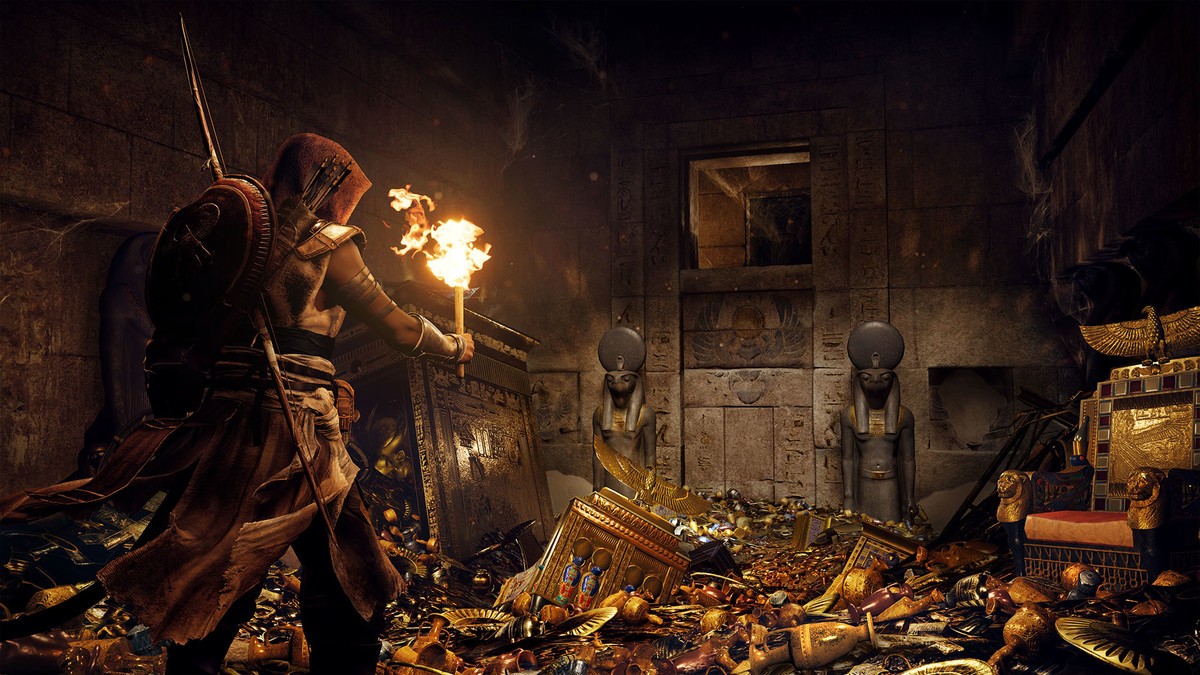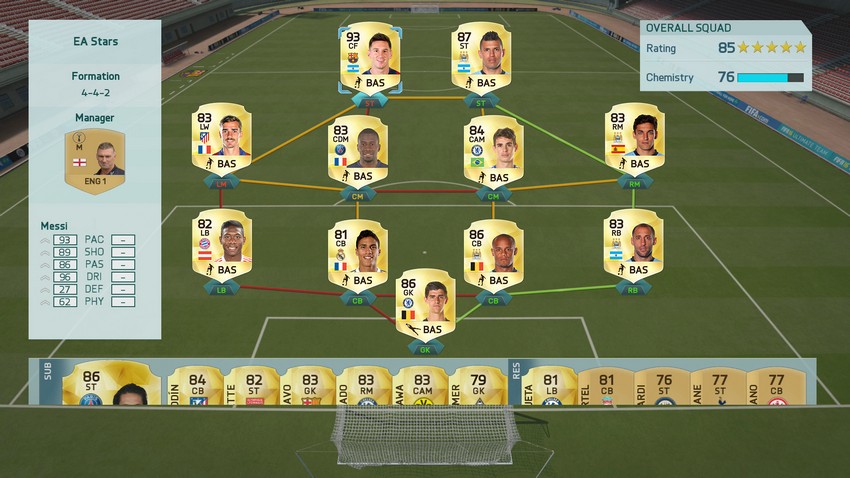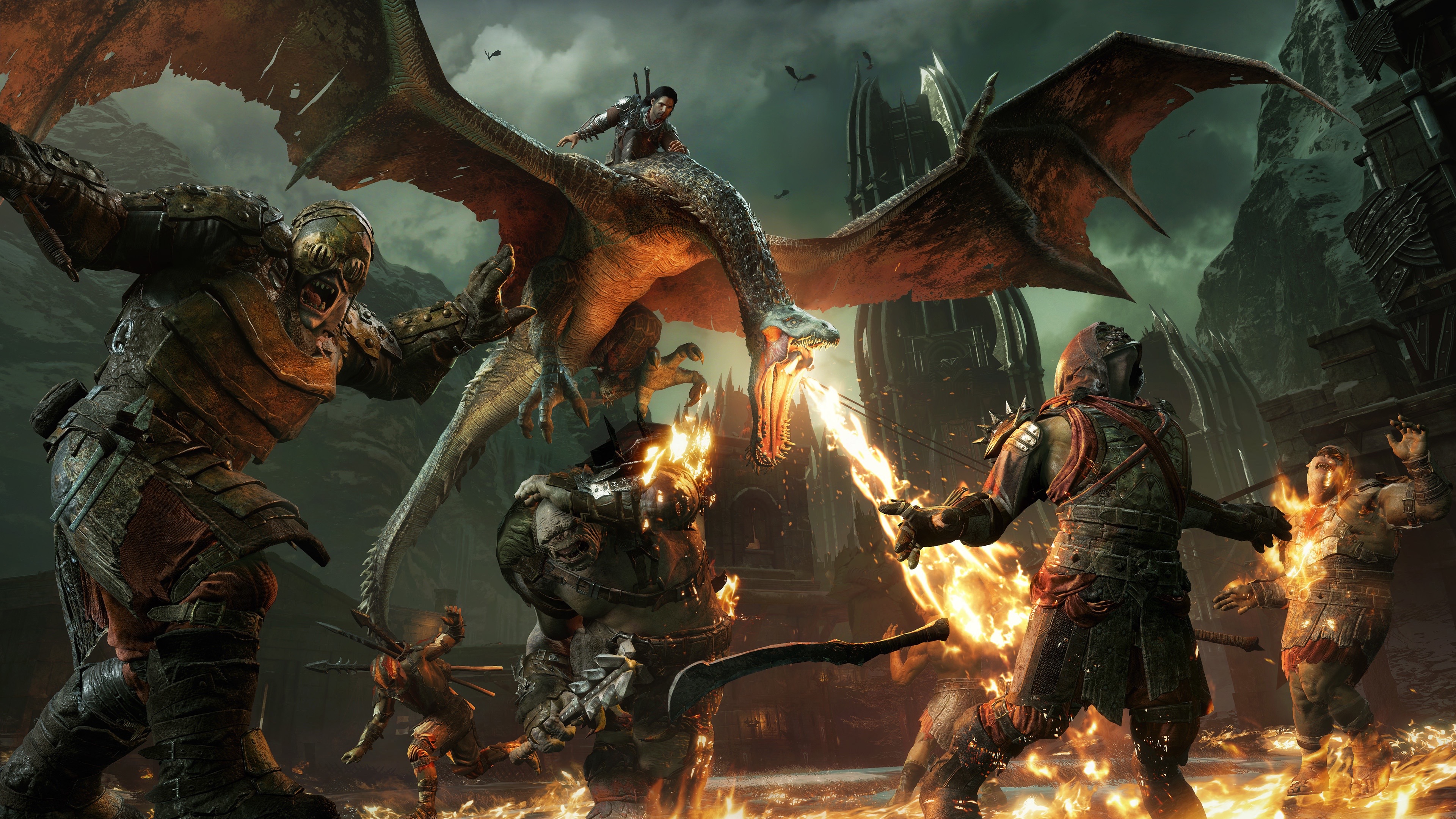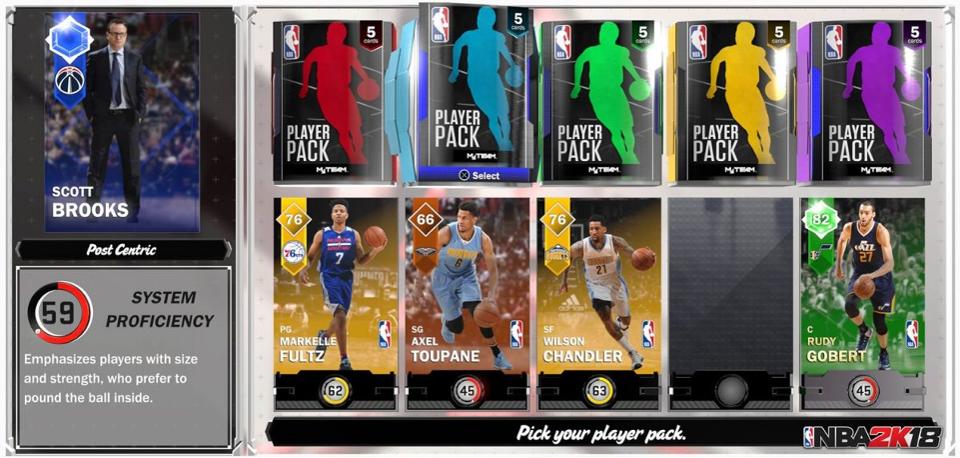Loot boxes are the controversial, but unavoidable, evolution of gaming
That said, they could be used a little more sparingly...

Sign up for breaking news, reviews, opinion, top tech deals, and more.
You are now subscribed
Your newsletter sign-up was successful
The video game industry is changing. Or, more specifically, it’s already changed, and we’re just starting to realise it.
Loot boxes and games geared towards a ‘service’ model have seemingly reignited the debate over the monetisation of in-game experiences - one that we faced years ago when free-to-play titles first reared their heads but are now barging into our games in more obvious, conspicuous ways.
Some gamers are, obviously, pretty upset about being plied to throw down an extra chunk of cash to buy in-game content after purchasing a game outright. Others aren’t happy, but see it as an inevitable step in games and seem to be lapping up the cosmetic items. Whichever side of the fence you're on, it’s a discussion that often glosses over the reason why we’re here in the first place.
The short uncomfortable answer is this: Loot boxes, microtransactions and DLC as a whole are the vanguards of a new era in gaming, one where games - even the ones on annual release cycles - become money sinks far beyond that initial purchase. The games industry is a business, after all.
- Want to know the Best PC Games (loot boxes and all)?
It’s something we often forget when we sit down after a long day at our consoles or our PCs, but games are made to make money. Sure, games might be made by passionate people with grand and captivating visuals, and often guided and marketed by people with just as much passion for a given property, but in the end the games that line our shelves or fill our hard drives weren’t designed, built and tested for artistic expression alone. They’re there to make money.

Industrial evolution
The root of the problem is that the balance between development cost and the final price consumers pay has become woefully lopsided.
Games have undergone a fast-paced evolution in the last two decades, with more intricate advancements in tech driving the visions of studios across the world. But those visions don’t come cheap, and budgets have swollen as the triple-A tier of the market has expanded - with many reaching into the multi-millions to make.
Sign up for breaking news, reviews, opinion, top tech deals, and more.
It's not a bad thing, but the price of games has never truly scaled with it.
We all often bemoan just how costly videogames are as a pastime (“$60/£50 for a game?” we’d hear our parents cry when we were kids, only to utter the same shocked words years later when it was our own money on the line), but the price of a double-A/triple-A game at launch has pretty much remained the same since the beginning of the ’90s.

This imbalanced business model isn’t the sole reason for the continued rise and assimilation of so many systems into a microtransaction setup, but it’s an important one to consider when we start pointing fingers at developers and publishers. Keep in mind, just like you the people making these games still have bills to pay and families to feed.
Games transforming into service setups where progression can be sped up or cosmetic items unlocked without the hard work was an inevitable end state that’s been years in the making.
The bigger publishers out there could start pricing their games higher (after all, a higher price ultimately makes sense if we want the industry to stop shrinking in the way it is), but they won’t. It would take a collected effort on the part of all the major and minor publishers to follow a pricing structure that every adheres to, and we know that’s simply never going to happen. Who’s going to mark their game at $70 when a game from the same genre is going for $50?
There’s also a greed factor to consider. Microtransactions, DLC and loot boxes are simply a more convenient way to turn games into an ongoing platform to maintain consumer investment. Why take just $70 at launch, when you can take $50 and another $50+ in additional content across another 12 or more months? It’s too lucrative a offer to turn down.
This isn’t about moralistic pride. This is business, first and foremost.

Boxing clever
Let’s be honest here, loot boxes wouldn’t be an issue if people weren’t buying them. Trends like this don’t become a cornerstone of development culture overnight. Whether you agree with them or not, microtransactions are a significant stream of revenue for game publishers.
The most famous example of this comes from Activision Blizzard who, in the last quarter of 2016, made an estimated $3.6 billion from in-game content alone. That’s a lot of Overwatch lootboxes and Call of Duty Points.
We can call them exploitative. We can bemoan them on YouTube or social media, but at the end of the day, plenty of people are still buying them. When something as innocuous as opening FIFA Ultimate Team packs has become its own subgenre of video on YouTube, you know these things are here to stay.
The counter-argument that the community is making is that, just because loot boxes aren’t going anywhere in the foreseeable future doesn’t mean every single publisher should see this admission as a hall pass to shoehorn them into every new game in every genre known to man.

Take Middle-earth: Shadow Of War, for example. A lot of noise was made about Monolith’s decision (or, as is more than likely, Warner Bros’ decision) to include loot boxes in a game that’s almost entirely single-player focused experience.
Claims were made that the game was pay to win, and that natural progress would be effectively blocked as a way to force you into the game’s marketplace.
But then Shadow of War arrived and it’s become apparent that’s really not the case: Yes, loot boxes are there, and are advertised every time you enter the game’s pause menu and yes, you see this menu a lot as checking your inventory and the Nemesis System is something you’ll do constantly (we know, seeing it so much can be a drag), but you don’t have to spend any money on them.
As someone that’s spent close to 40 hours marauding around Middle-earth, I can tell you then there’s no need - bar a desire to avoid the grind required to besiege a fort - to submit and buy loot boxes.
Ultimately, the virtual blind bags don’t impede the final product, and for a game that offers as much content as it does, the argument that its microtransactions wall off content simply doesn't hold up. However, when it comes to online titles with a distinct competitive component, things start to get a little murkier.
In a galaxy not far, far away...
Let's take a look at one of those online titles. Star Wars Battlefront 2 should suffice. The recent beta gave us the chance to see just how much DICE has improved on the impressive work it pulled off in the original Battlefront.
But then there’s those crates, which offer Star Cards, Emotes, Victory Poses and more. They’re Battlefront 2’s own take on loot boxes and they’re worrying a lot of potential players - like myself - who spent plenty of time in the beta.

EA has been quick to temper fears, stating that the Beta didn’t feature every facet of Battlefront 1’s internal economy and that certain weapons and Star Cards won’t be available until you reach the required level, but it’s a system that’s already proven to be imbalanced.
Battlefront wasn't the first - or the last shooter to use microtransactions, obviously, so why hasn't anyone kicked up a stink over the loot boxes in Overwatch?
That's because Blizzard's take on microtransactions contain skins, emotes and other purely cosmetic additions. They have zero effect on the outcome of a game. If you’re jumping into a round of Battlefront 2’s multiplayer modes as a new player and you match up against a player who’s bought a load of high level Star Cards from loot boxes, they’ve effectively paid to win.
But don't storm the message boards just yet, EA isn't the only perpetrator.

The same thing has turned NBA 2K18 into a painful experience for new players, where the core long-term mode of playing MyTEAM or Playground is all about earning VC (Virtual Currency). With a painfully slow grind between levels, microtransactions are presented as the only real way to have any chance of performing well. Visual Concepts, the game's developer, has admittedly been tweaking this issue, but it’s still an imbalanced mess that makes spending more cash in a full-priced game the only way to truly progress.
First shooters, now sports, I really wasn’t kidding when I said loot boxes aren’t going anywhere. Racers. Beat ’em ups. Sandboxes. Hell, it’s only a matter of time before Lego games get the microtransaction treatment.
So what's a cash-strapped gamer to do?
If you can't stand this strange new world, it’s time to start speaking with your wallet, because that’s the only language the games industry understands: Don't buy loot boxes or cosmetic items or, better yet, don't buy games that offer microtransactions. It may not be possible to stem the tide of loot boxes, but it might just be possible to slow it down to the point that publishers and developers look for alternative ways to make up for longer development times.